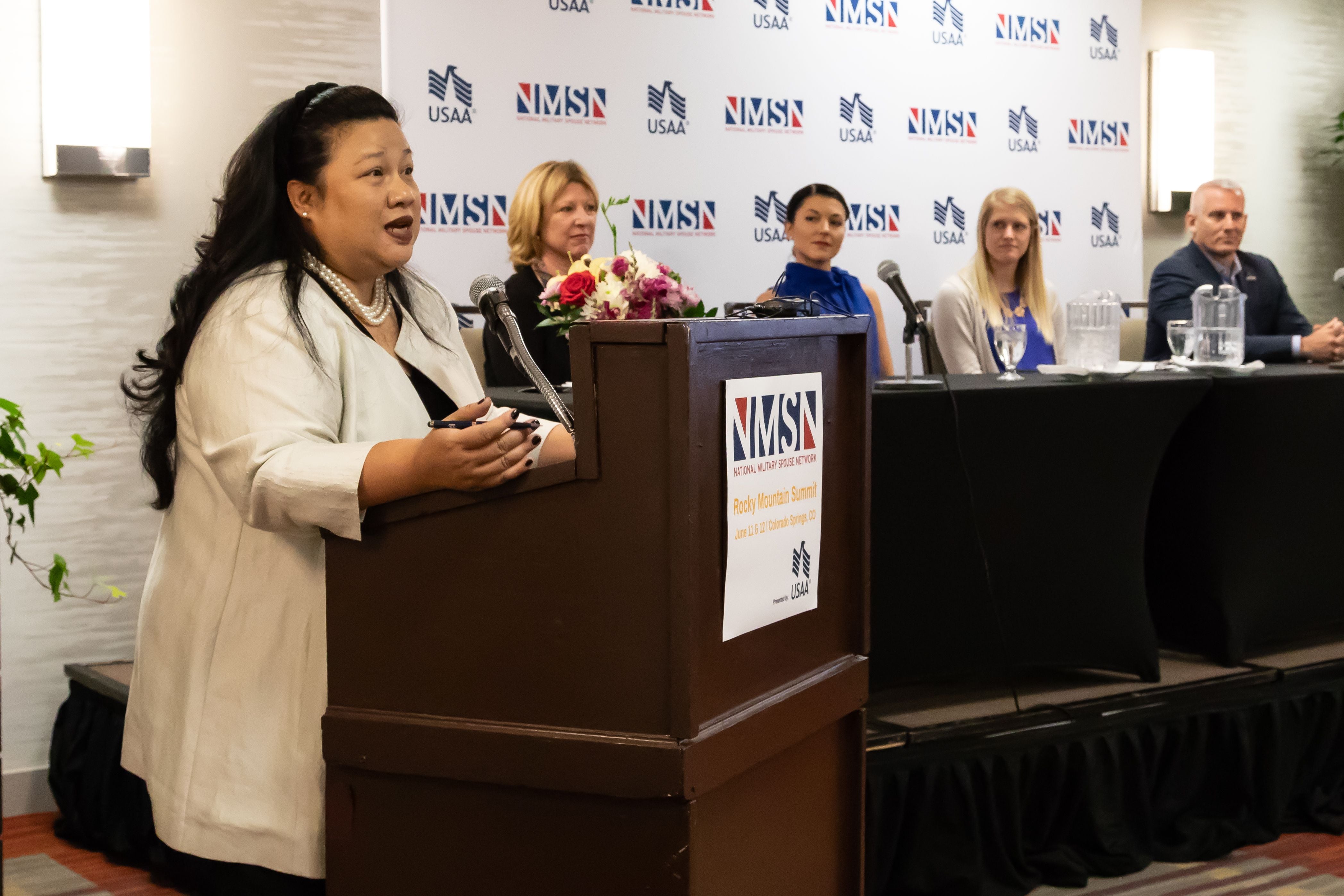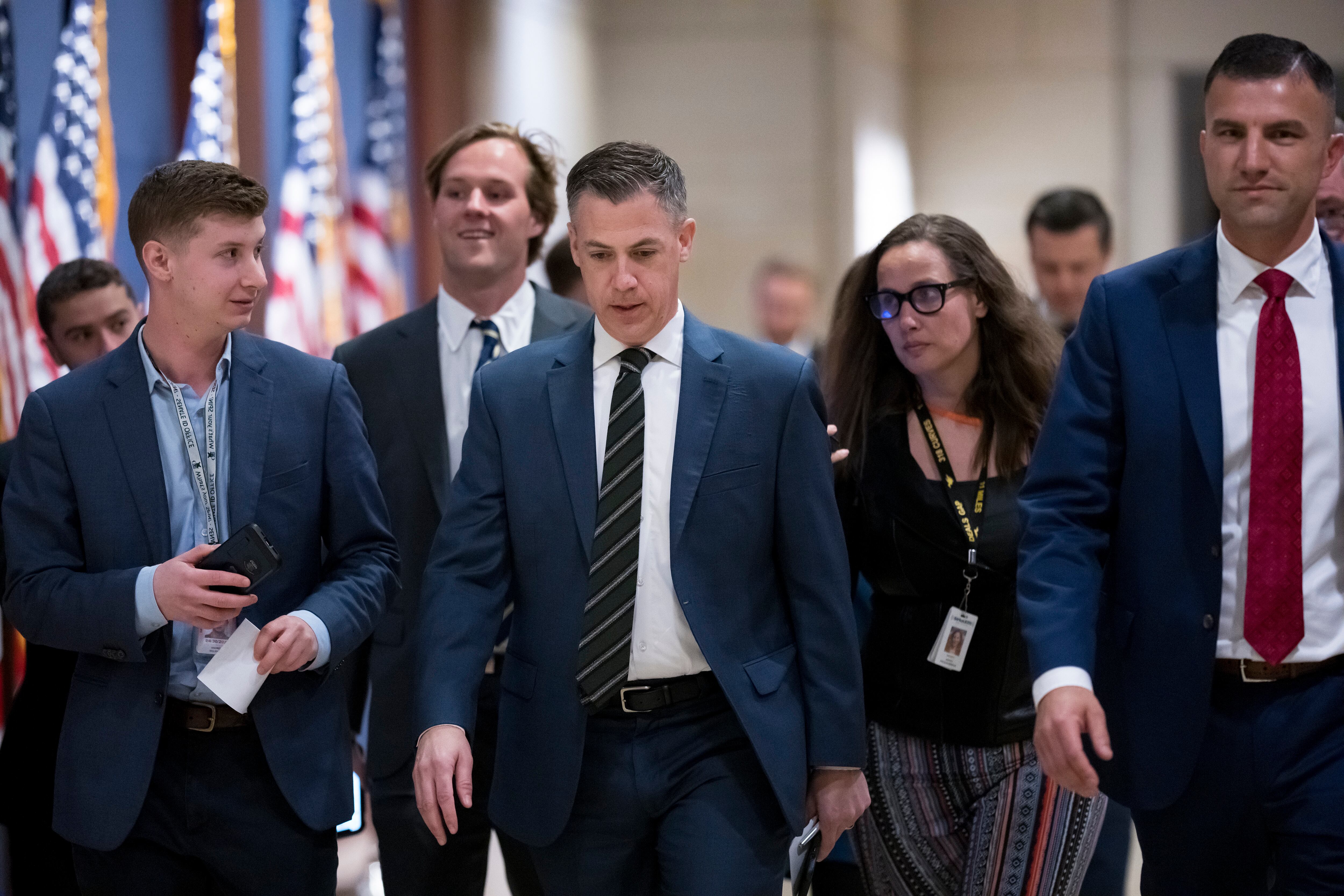The Military Spouse Employment Partnership Program welcomed more than 70 new employers Tuesday, bringing the total number of partners looking specifically to hire military spouses to more than 600.
It’s a diverse new group that includes Garmin International, Great Clips, Hunt Companies, Winn Companies, TD Bank and TIAG, as well as the Military Spouse Chamber of Commerce, Save the Children, the U.S. Department of Justice, the Office of the Comptroller of the Currency, the University of Dayton and the Washington State Department of Veterans Affairs, to name a few.
This is the 11th year of the DoD Military Spouse Employment Partnership. Since last October, more than 40,000 military spouses have been hired through the program “our largest hiring level ever,” said Gilbert Cisneros, undersecretary of defense for personnel and readiness, during the ceremony. More than 250,000 military spouses have been connected to employment opportunities in corporate and federal spaces, across all industry sectors, under the DoD MSEP program, he said. The program began in the Army and was expanded in 2011 DoD-wide.
As of Oct. 25, there were 607,117 active job listings on the MSEP portal seeking military spouses.
Defense officials are launching another initiative, said Eddy Mentzer, a military spouse who is associate director of Military Community Support Programs and manager of the Spouse Education and Career Opportunities program. Beginning Oct. 31, 30 employers will become part of a new MSEP Small Business program “recognizing the opportunities that businesses in military-impacted communities present for our military spouse community,” he said. That’s in addition to an initiative he announced earlier in which DoD will fund a spouse fellowship program, placing spouses into 12-week paid fellowship positions with the goal of spouse becoming employed full time at the end of their experience. That program, starting in January, is called DoD’s Military Spouse Career Accelerator Program.
“Expanding spouse employment is a priority of the department,” Cisneros said.
“MSEP is helping to eliminate the barriers military spouses have faced for decades,” Cisneros said, as he urged the employers to spread the word to other businesses about the talent pool of military spouses.
The employers undergo a “robust vetting process” by defense officials before they become partners in the program, Cisneros said. The new partners join “an elite group that opens you to the military spouse community and the diverse skills they offer,” he said.
During the ceremony, a representative of each new partner signed a poster affirming their commitment.
That commitment includes “recruiting, hiring, promoting and, most importantly, retaining our military spouses,” said Patricia “Patty” Barron, deputy assistant secretary of defense for military community and family policy, and a military spouse for more than 30 years. She noted that military spouses typically move every two, three or four years, and their unemployment rate hovers around 21%, much higher than in the civilian community.
At each step along the way of her family’s more than a dozen moves, she said, “I relied on my own creativity and resilience, along with the generosity of employers who recognized my value as a military spouse. I do owe my employers so much because of their ability to support me and be flexible with my needs.”
Some employers in the MSEP partnership have created military spouse-friendly leave policies or programs to transfer jobs as they make PCS moves, she said. Some have launched internal fellowship programs.
RELATED

Linda Gilday, wife of the chief of naval operations (who attended the ceremony with her), thanked the new partners for their commitment and said they are making a considerable difference to military families. Gilday’s career in infrastructure management has spanned 40 years across the corporate, federal and nonprofit sectors — and across 19 military moves.
She told the employers they are “opening the door to a very qualified group of committed, adaptive, resilient ancd creative group of men and women. They’re educated and trained. They’re just what you need.”
Gilday encouraged military spouses to “remain strong, keep looking, keep networking and try to do what you can to keep your professional growth going.
“If you have to move off track a little bit to move into a new organization, I’m sure that these new MSEP partners are more than happy to talk to you about that. …
“I’m encouraged by the momentum you have going, all the partnerships you’re forming, and I’m excited for the spouses out there as well,” she said. “As military spouses, we all want to make a difference.
“All the spouses out there are serving in their own way, being a spouse to the partner who is serving. But we also want to have our own careers and our own opportunities to grow professionally in our private lives.”
Karen has covered military families, quality of life and consumer issues for Military Times for more than 30 years, and is co-author of a chapter on media coverage of military families in the book "A Battle Plan for Supporting Military Families." She previously worked for newspapers in Guam, Norfolk, Jacksonville, Fla., and Athens, Ga.





